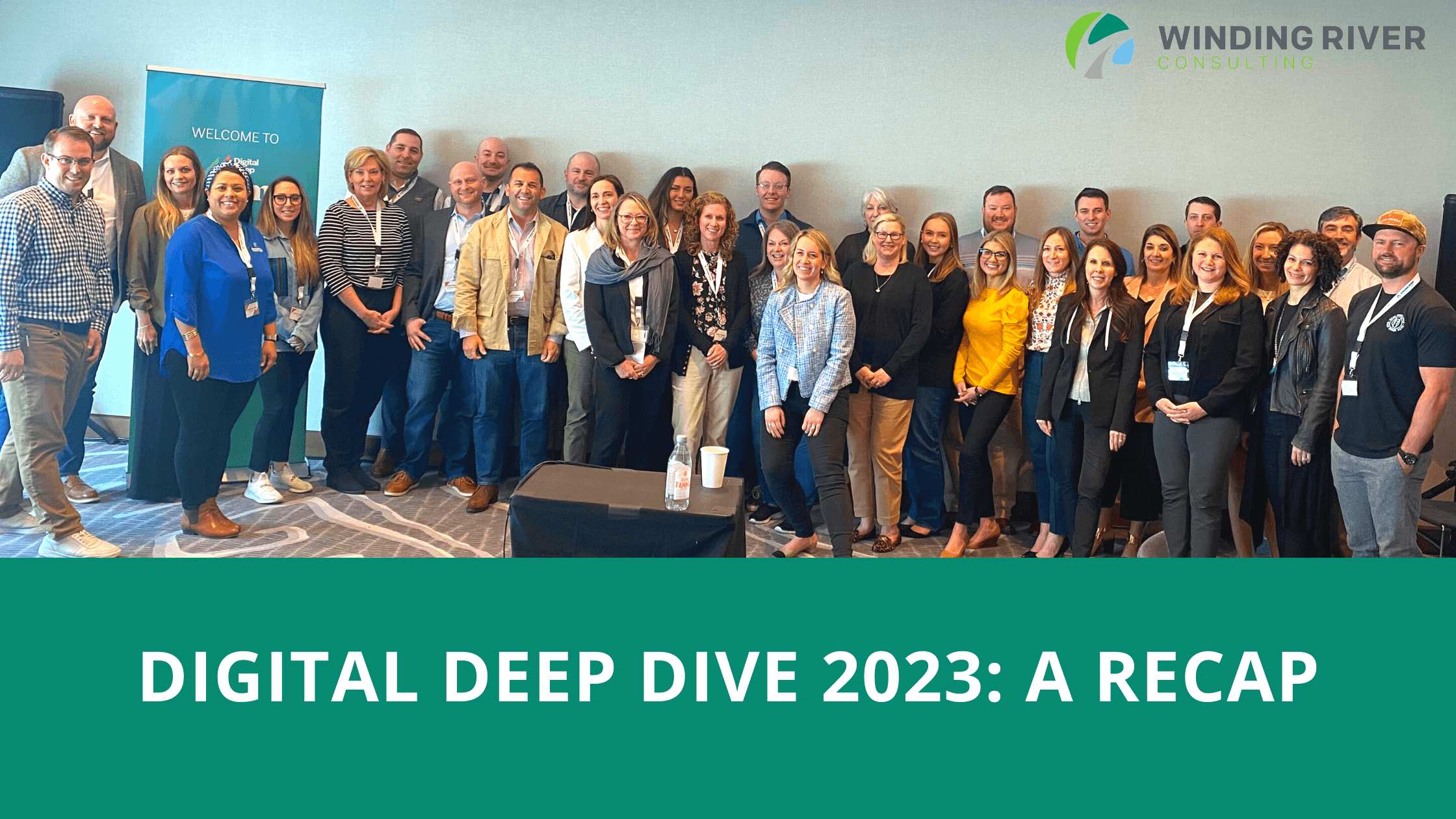5 min read
5 LinkedIn Trends Accounting Firm Leaders Can’t Afford to Ignore
In 2025, LinkedIn isn’t just a platform: it’s a decision point. Whether it’s a potential client, future talent, or a potential referral source, the...
4 min read
by:
 Brian Blaha
on
May 12, 2025
Brian Blaha
on
May 12, 2025

Brian is a seasoned CPA firm leader and strategist with decades of experience driving transformation across professional services. A former Chief Growth Officer at Wipfli, he now advises firms and PE groups on leadership alignment, M&A integration, and sustainable, people-first strategy.
Table of Contents

When accountability overshadows inspiration, talent walks out the door. Leaders in every industry, not just professional services, are falling into the same trap—pursuing financial results at the expense of the human element that makes teams thrive.
Effective leadership in today's accounting profession demands that we rise to this challenge. How do we create the accountability systems necessary for financial performance while building cultures where people feel genuinely inspired to do their best work? This isn't an academic question: in many cases, it's the difference between firms that retain top talent and those that become revolving doors.
The answer lies in finding the proper balance. Great leaders bring a balance that respects both the financial pressures of modern practice and the fundamental reality that accounting remains, at its core, a people business. This balance doesn't happen by accident. It requires specific leadership traits and practices that can be developed, refined, and systematized.
TRAIT: BALANCED LEADERSHIP
Financial results matter. They always will. But in our profession's rush to embrace metrics-driven management, we've sometimes forgotten a fundamental truth: people don't join or stay with organizations primarily for financial rewards. They join for purpose and meaning.
I've seen this play out repeatedly throughout my career––both with the clients I worked with as well as inside my firm. When leaders focus exclusively on KPIs and financial targets without fostering an environment where people feel connected to a larger purpose, engagement plummets. This is particularly evident when practices are acquired and professionals suddenly transition from owners to employees operating under rigid performance metrics.
The solution isn't eliminating accountability. It's finding the right balance. Learn not just to use the stick, but also the carrot. The most effective leaders provide direct, honest feedback in a way that encourages rather than threatens, helping people see not just what they have to achieve, but why that’s beneficial to both themselves and the firm’s larger mission.
TRAIT: INTENTIONAL CULTURE BUILDING
Everyone talks about culture. But few can define what theirs actually is. Most firm cultures develop organically without clear intention, making them difficult to maintain during growth or transition.
A culture system, by contrast, is deliberately constructed. It begins with a clear North Star: a compelling purpose that gives direction to every decision. This isn't just a mission statement gathering dust on a wall. It's a guiding principle that leadership consistently reinforces through action.
Building this system requires establishing strong, well-defined guidelines that explicitly state what defines your culture. These guidelines need robust training and communication plans to ensure they permeate the organization. Most importantly, leaders must embody these cultural elements consistently over time.
The final piece is accountability. You need mechanisms to address situations when team members aren't aligned with cultural expectations. Without this, your carefully crafted culture will erode with each unchallenged break from your firm’s agreed ethos.
TRAIT: STRATEGIC THINKING ACROSS MULTIPLE TIMEFRAMES
Strategic planning shouldn't be a one-time event. It's a discipline that requires different mental frameworks depending on your time horizon. Effective leaders distinguish between three distinct planning horizons.
The first horizon focuses on immediate action: what must we accomplish in the next 6-12 months? The second looks ahead 2-3 years to establish directional goals. And the third extends further, envisioning what the firm might become long-term.
The mistake many leaders make is jumping straight into the first horizon without proper consideration of the others; to focus only on the here and now, and not on the longer term. There’s a good reason for that: creating a system that gives leaders permission to think beyond the immediate future takes persistence. Annual planning should include dedicated time for medium and long-term thinking, allowing us to create cascading goals that connect daily work to larger purposes.
Equally important is including team members in the planning processes across all three time horizons. When people feel direct ownership in the strategic direction of the firm, they're naturally more engaged in execution. Without this involvement, even the best strategies face resistance in implementation.
TRAIT: EMOTIONAL INTELLIGENCE
Emotional intelligence distinguishes good leaders from great ones. Understanding how to read your people and adapt accordingly isn't a nice-to-have: it's essential.
The most effective feedback is tailored to the individual receiving it. Some team members respond to direct communication. Others need more encouragement. The key is recognizing what each person needs rather than applying a one-size-fits-all approach.
You can't change someone's authentic self. As leaders, we aren't in the business of personality reconstruction. Our job is to help people leverage their natural strengths while mitigating weaknesses. This requires seeing each team member as an individual with unique qualities and challenges.
TRAIT: AUTHENTIC PRESENCE AND ACTIVE LISTENING
Being authentic may be the most powerful leadership tool at your disposal. Teams can sense insincerity immediately, and they won't follow leaders they don't trust. All great leaders have one thing in common: followers. And that’s only possible if you show up as your genuine self day after day.
But authenticity alone isn't enough. The discipline of active listening separates truly exceptional leaders from the rest. Too many leaders are first to speak, dominating conversations and inadvertently signaling that other perspectives aren't valued. Instead, focus on being vulnerable in certain scenarios. Create space for ideas to emerge, resist the urge to immediately assert your opinion, and give credit to others for their ideas, rather than presenting them as your own.
The traits I've outlined—balanced leadership, intentional culture building, strategic thinking across multiple timeframes, emotional intelligence, and authentic presence with active listening—form the foundation of effective leadership in our profession.
The firms that will thrive are those led by individuals who recognize that our greatest asset isn't technology or capital: it has, and always will be, our people. And people perform at their best when they're both inspired by purpose and held accountable to meaningful standards. As we navigate the evolving landscape of our profession, this fundamental truth will continue to distinguish truly exceptional leaders from the rest.

5 min read
In 2025, LinkedIn isn’t just a platform: it’s a decision point. Whether it’s a potential client, future talent, or a potential referral source, the...

5 min read
Last month saw the return of the popular Digital Deep Dive Summit: the only digital summit created exclusively for accounting firms. Held in...

3 min read
Accounting and consulting firms must embrace new pricing models and artificial intelligence to remain competitive in a rapidly changing world. ...